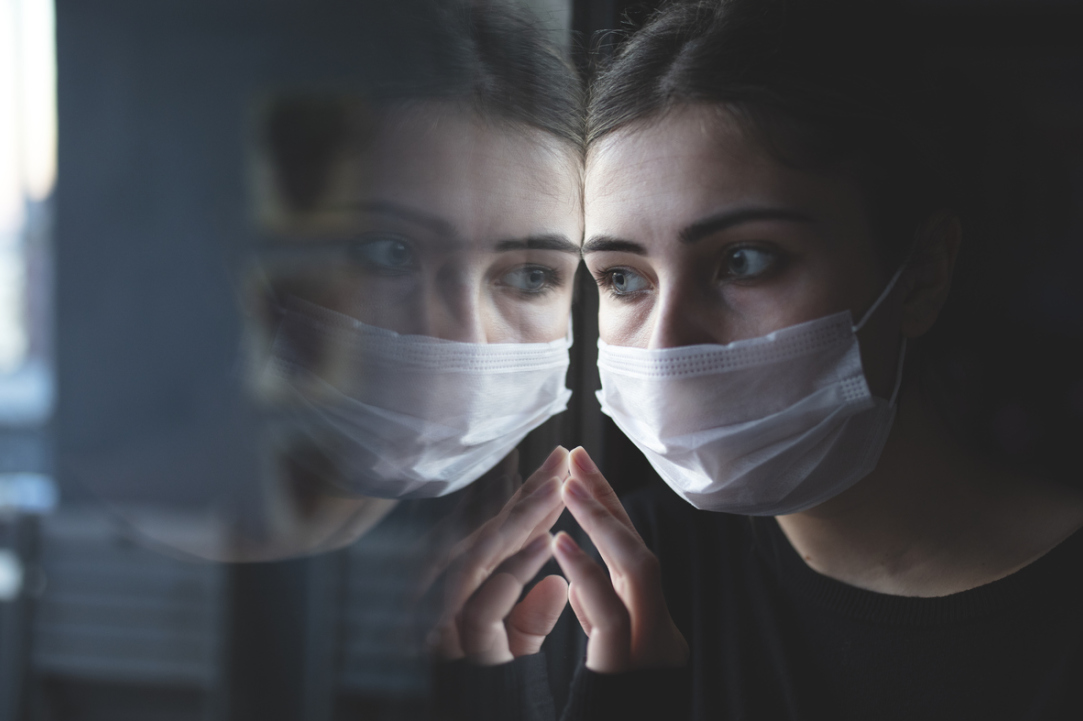People’s Values Affect Their Attitudes to COVID-19 Restrictions

HSE social and political analysts have established which value models and circumstances promote support for restrictive government policies aimed at combatting the coronavirus pandemic. The research is published in Plos One.
The World Health Organization (WHO) launched the international ‘Stay home. Save lives’ media campaign early in the COVID-19 pandemic, emphasizing that people themselves can pose a risk to others, including strangers. The WHO called for people to protect others from getting sick, encouraging the mindset that we are all responsible for other peoples’ lives. The effectiveness of this strategy is one of the main topics examined in the HSE research.
A team of HSE researchers (Kirill Chmel, Aigul Klimova, and Nikita Savin) investigated which of two strategies in the Russian public’s behaviour—protect yourself or take care of others—is more effective for the government in combatting the pandemic. The researchers conducted two online experiments involving 2,200 respondents. The 2х2 factorial design covered two main factors: COVID-19 risks (relatively high vs relatively low) and the object at risk (individual losses vs losses to others). The researchers provided the respondents with different descriptions of the COVID-19 pandemic, then analyzed the changes in the respondents’ willingness to forfeit their rights and support restrictive measures (including the introduction of criminal liability for violation of these measures).
The experiments helped the researchers to determine the significance of people’s personal values. People who share prosocial values and recognize the importance of safeguarding other peoples’ welfare rather than just their own appear to be more receptive to information highlighting the risks posed to others.

Kirill Chmel, Junior Research Fellow of the Ronald F. Inglehart Laboratory for Comparative Social Research
‘Therefore, calls to wear masks and observe social distancing for the sake of others’ safety only strike a chord with people who have prosocial values. Conversely, those who do not share such values focus on the personal threats and risks posed by COVID-19.’
Moreover, the research revealed that framing COVID-19 as a high risk significantly increased support for anti-COVID measures, which, in the researchers’ opinion, could promote support for anti-democratic policies across the globe.
Daily reports on the number of deaths and new infections result in a considerable overestimation of the mortality risk posed by the novel coronavirus. For instance, the researchers found that respondents estimated the mortality risk of COVID-19 to be 35% on average—at least ten times higher than the actual death rate at the time of the survey.

Nikita Savin, Associate Professor of the School of Integrated Communications
‘Such distorted estimates make people more willing to forfeit their rights and freedoms in the name of safety. This creates the threat of widespread support for autocratic policies that political forces in many countries could take advantage of. Moreover, disproportionately high estimations of the COVID-19 mortality risk undermine citizens’ trust in their government’s ability to fight the pandemic.’
The authors of the article call for researchers and authorities to pay attention to risk communication and its influence on citizens’ behaviour during the pandemic.
Aigul M. Klimova
Senior Research Fellow, Ronald F. Inglehart Laboratory for Comparative Social Research
Nikita Savin
Associate Professor, School of Integrated Communications
Kirill Chmel
Junior Research Fellow, Ronald F. Inglehart Laboratory for Comparative Social Research
See also:
HSE Biologists Explain Mechanism behind Coronavirus Evolution
A team of researchers, including scientists of the HSE Faculty of Biology and Biotechnology, have analysed the evolutionary path of the coronavirus from the Wuhan variant to Omicron. Their findings indicate that many genomic mutations in SARS-CoV-2 are shaped by processes occurring in the intestines and lungs, where the virus acquires the ability to evade the inhibitory effects of microRNA molecules. The study findings have been published in the Journal of Medical Virology.
Russian Researchers Explain Origins of Dangerous Coronavirus Variants
HSE researchers, in collaboration with their colleagues from Skoltech and the Central Research Institute for Epidemiology, have uncovered the mechanisms behind the emergence of new and dangerous coronavirus variants, such as Alpha, Delta, Omicron, and others. They have discovered that the likelihood of a substitution occurring at a specific site of the SARS-CoV-2 genome is dependent on concordant substitutions occurring at other sites. This explains why new and more contagious variants of the virus can emerge unexpectedly and differ significantly from those that were previously circulating. The study’s findings have been published in eLife.
HSE Biologists Prepare Strategy for Universal COVID Test
Russian researchers have developed a strategy to create a cheap and rapid COVID-19 test based on isothermal amplification. According to their publication in Applied Biochemistry and Microbiology, use of this strategy will make it possible to create universal test systems for any of the COVID-19 variants.
Model of Predator-Prey Relationship Helps Predict Spread of COVID-19
Researchers from the HSE Faculty of Economic Sciences have proposed a mathematical model that describes the course of the COVID-19 pandemic, taking into account the restrictions applied in different countries. The model will help governments make reasonable and timely decisions on introducing or lifting restrictions. The paper was published in Eurasian Economic Review.
HSE University Classes to Be Held On Site for All Students
Classes in the new academic year will take place on site for students of all HSE University campuses. Existing COVID safety precautions will remain in effect.
Russian Scientists Investigate the Immune Response to SARS-CoV-2 Variants
HSE University researchers assessed the effectiveness of the T-cell immune response to 11 variants of SARS-CoV-2. Their findings have been published in Nucleic Acids Research.
First-year Students Will Be Able to Get COVID Shots at HSE University
The new regulations ‘On the Organization of Studies for the 2021/2022 Academic Year’ feature in detail what will change for first-year students in the new academic year. HSE University will be organizing a vaccination drive in September for students aged 18 and over who are unvaccinated. Younger students will be eligible for vaccination once they turn 18.
New Safety Measures to Be Introduced at HSE University
Starting September 1, 2021, HSE University-Moscow is introducing new safety policies on campus to prevent the spread of COVID-19. They apply to students over 18 years old who have not had COVID during the last six months, have not been vaccinated (with a Russian or a foreign vaccine), nor have a medical exemption from vaccination. Free vaccination will be available on campus to all arriving students.
HSE University Creates the Viral Genealogy Simulator to Model the Spread of COVID-19
Researchers of HSE Tikhonov Moscow Institute of Electronics and Mathematics (MIEM), in cooperation with their colleagues from the University of California, Santa Cruz (UCSC), and The European Bioinformatics Institute (EMBL-EBI), have developed software to model the spread of the COVID-19 global pandemic. This is the world’s fastest Viral Genealogy Simulator (VGsim). For more details about this scalable simulator, read the reprint on medRxiv. The code is freely available at GitHub.
Post-pandemic Rehabilitation. What Will Help Russia's Economy Recover?
The year 2020 was a period of economic hardship and significant change in a wide range of sectors for most countries. A team of authors from HSE University has explored how Russia will recover from this crisis and which industries will be affected by the economic recovery. Their study was published in the journal Voprosy ekonomiki.


